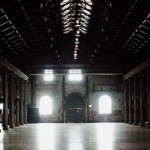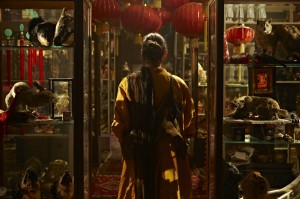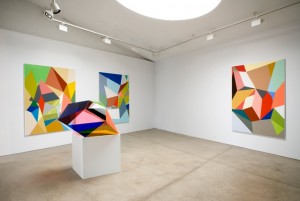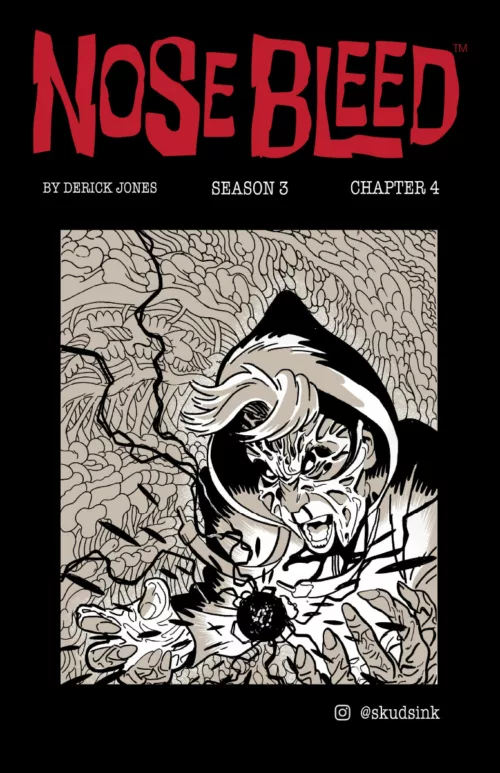When I entered the solo show of Melanie Boreham at Hardware Gallery, I entered a forest. Suspended from different heights from the ceiling were forty bonsai-sized trees. These floating trees captivated me immediately because of their defiance of gravity, floating in a dream-like constellation. But the trees captivated me more because they were woven and constructed out of human hair.
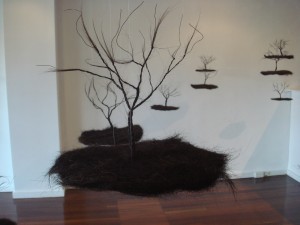
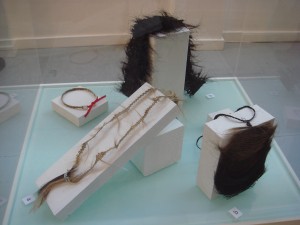
The first gallery of the show The Departed led me to the second room to discover Boreham’s paintings, drawings, videos and additional sculptures. In her exhibit, the 22-year-old multi-disciplinary artist reveals the extent of her exploration of and fascination with hair by unveiling her entire process. While her paintings and drawings reference the styles of Schiele and Klimt (seen more explicitly in her previous work, viewable on her website), Boreham excels in the creation of sculptural objects. A display case exhibits jewelry all woven from human hair, a disturbing and fascinating sight. A nod to exquisite Australian artist Fiona Hall, Boreham’s case weaves and unravels complex human histories and the complexities of display. While I appreciated seeing the entire process of the artist through different media, the multi-media exploration diluted the poetic strength of her work.
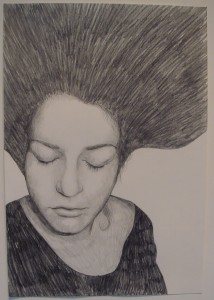
The description of The Departed carries the weight of a self-conscious over-intellectualization symptomatic of too much of the arts in Sydney. Boreham claims her hair pieces are about the “anxieties of separation and the breakdown of relationships.” Boreham has rationalized her way too far from the source and seems blind to the poetic strength of her work. Hair is tied up in our identity, is attached to our history. In the past hairstyles connoted status and even today in orthodox religions, hair holds a certain power, needing to be hidden or removed for modesty’s sake. Beyond all that, hair is a very subtle indication of life: it grows slowly; it becomes lustrous when healthy; cyclically, we cut it. Hair, along with nails, grows after death. During WWII, all those in concentration camps had their heads shaved. Where did their hair go? Did it have a life of its own? What happens to all our severed locks? Hair as a subject and material holds immense potency (it was the theme of the first volume of the Sydney-based book project Trunk by Suzanne Boccalatte and Meredith Jones bringing together writing and art). To sculpt severed hair into natural forms speaks to a somewhat morbid yet fascinating reality of life after death. In her choice of material and form, Boreham has unlocked visual poetry.
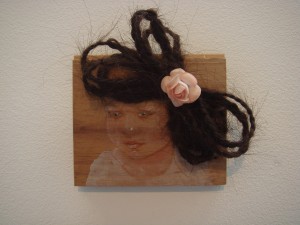
There is a strange and enthralling quality within Boreham’s sculptural work that she must fully trust. In The Departed, the artist is too quick to reveal her process, too quick to over-analyze her mission. She should instead leave her viewer captivated by trusting her sensitive poetic instinct and only revealing the mysterious and ethereal otherworld she has created.
Melanie Boreham’s The Departed will be on view at Hardware Gallery (263 Enmore Road, Sydney, Australia) until April 1, 2010.



